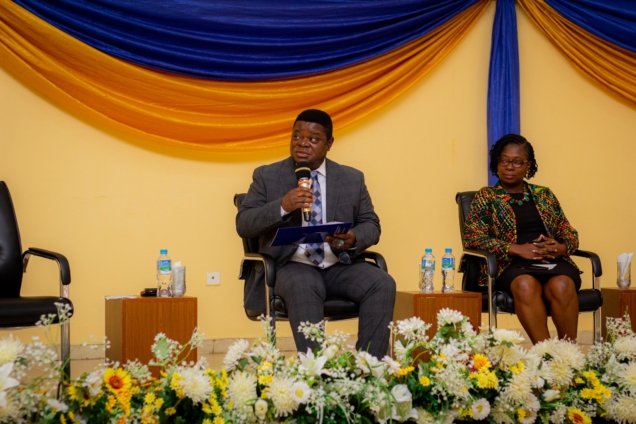Director of the Institute of Statistical, Social, and Economic Research (ISSER) Prof. Peter Quartey has been outlining the potential impact of the second round of the debt exchange in Ghana.
The renowned economist explained that the Program, initiated on July 14, 2023, in collaboration with the Ghana Cocoa Board, aims to restructure debt instruments, with a particular focus on the GH¢8.1 billion worth of Cocoa Bills and domestically issued US$-denominated bonds amounting to $808.99 million.
A noteworthy aspect of this exchange is the dramatic reduction in interest rates, plunging from an overwhelming 30% to a mere 13% for cocoa bill holders.
The restructuring extends to the creation of five new Cocoa bonds, set to mature between 2024 and 2028.
This allocation comprises 5.0 percent of the amount to be exchanged against the 2024 bond, 20.0 percent against the 2025 bonds, and 25.0 percent each against the 2026, 2027, and 2028 bonds.
For locally held US dollar-denominated bonds, the previous interest rate of approximately 6% has been transformed into two new bonds maturing in August 2027 (R=2.75% payable semi-annually) and August 2028 (R=3.25% payable semi-annually).
In addition to this extensive restructuring, the Ghanaian government is actively engaged in negotiations with pension funds, which hold a substantial GH¢29.2 billion.
This separate execution arrangement is designed to maximise the benefits of the debt exchange.
The scope of this transformation isn't confined solely to domestic matters; it extends to non-tradable debt held by the Bank of Ghana and encompasses the energy sector, including independent power producers (IPPs).
While there is undeniable promise in this second round of debt exchange, Professor Quartey also shed light on the significant adverse effects.
He argues that one of the foremost challenges is the substantial reduction in coupon rates, which poses a formidable hurdle for banks.
These financial institutions will be compelled to write down the value of their cocoa bills, resulting in a substantial reduction in interest income.
This dire consequence adds to the burden on banks that are already navigating the complexities of the financial landscape.
Furthermore, the debt exchange places a burden on domestic investors who are grappling with significant losses in real returns due to high inflation and the sharp depreciation of the Ghanaian cedi against the US dollar.
For both individuals and firms, the face value and real value of their funds are eroding, deepening the economic hardships they face.
Professor Quartey's insights into Ghana's second round of debt exchange underscore the potential for profound transformation in the nation's financial landscape.
While this initiative promises significant benefits, it also carries substantial adverse effects that warrant careful consideration.
Striking the right balance between hope and hardship will be imperative to ensure a sustainable and prosperous financial future for Ghana.
Latest Stories
-
Samson’s Take: Arrogance of Power, Shameful Policing
18 mins -
Burnley score late to draw with Manchester United at Old Trafford
3 hours -
Bayer Leverkusen extend unbeaten run to 46 games after draw with Stuttgart
3 hours -
Chelsea come from two goals down to draw against Aston Villa
3 hours -
Andre Ayew scores in Le Havre’s 3-3 draw with PSG
3 hours -
GPL 2023/24: Kotoko draw with Medeama; Samartex go 7 points clear of Nations FC
3 hours -
Mahama cuts sod for construction of new multipurpose Jakpa palace in Damongo
3 hours -
NSS management assists Papao fire victims
4 hours -
EXPLAINER: Will dumsor end soon?
4 hours -
IMANI Africa takes on EC, accuses it of lying and publishing half truths
5 hours -
Manasseh Azure calls for investigation and prosecution of those responsible for GRA/SML contract
6 hours -
Kwesi Atuahene: Ghana’s health capital depends on HealthTech – Africa Center for Digital Transformation
6 hours -
13 signs your wife is planning on leaving you and you have no idea
6 hours -
IMANI Africa: Ghana’s EC’s dangerous and pathological conduct
6 hours -
If I speak there will be fire – Salah on Klopp row
7 hours

